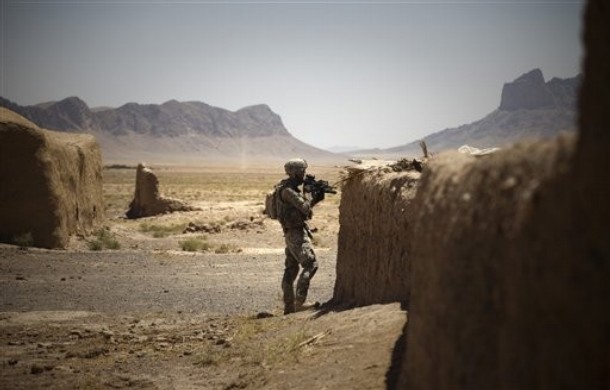Does Defeating al Qaeda Mean Nation Building?

Marc Lynch asks whether the costs of nation building in Afghanistan are worth the benefits:
What are the strategic reasons for expanding the commitment in Afghanistan? Why should the US be committing to a project of armed state building now, in 2009?
I hope that the argument isn't that it's to prevent al-Qaeda from reconstituting itself in the Afghan safe havens. That's a fool's game. It makes sense to keep the pressure on al-Qaeda, but does that require "armed state building"?
Suppose the U.S. succeeded beyond all its wildest expectations, and turned Afghanistan into Nirvana on Earth, an orderly, high GDP nirvana with universal health care and a robust wireless network (and even suppose that it did this without the expense depriving Americans of the same things). So what? Al-Qaeda (or what we call al-Qaeda) could easily migrate to Somalia, to Yemen, deeper into Pakistan, into the Caucasus, into Africa --- into a near infinite potential pool of ungoverned or semi-governed spaces with potentially supportive environments. Are we to commit the United States to bringing effective governance and free wireless to the entire world? On whose budget?
I think there is a legitimate worry that a U.S. policy that focuses solely on drone attacks is going to very quickly alienate much of the world and particularly Pakistan, a country we can't exactly afford to see destabilized. That said, the alternative, as Lynch demonstrates, doesn't strike me as tenable either.
In this vein, it's also worth considering the warning of the American Security Project's Bernard Finel:
In terms of [Obama administration's] diagnosis, there is still a broad reliance on macro causes to explain individual behavior. There is good reason to doubt this linkage — analytically and more significantly strategically. As I have pointed out many times, there are more gang members in Los Angeles than “jihadists” worldwide. If we can’t prevent gang violence in our own cities, how can we hope to prevent people from joining terror networks abroad? As long as groups like al Qaeda can survive by recruiting a few thousand individuals out of a potential pool of 1.3 billion Muslims, it seems tremendously unlikely that we will ever be able to eliminate “upstream” factors enough make a dent in the capabilities of terrorist groups.
I think there's a lot of merit to that argument, but it's also elides an important point. Those who are joining radical movements may do so from a mix of motives, but it's usually the case that they join movements that are tied to a broader political struggle pitting the Islamist group against a local or international enemy. In Somalia, it's al-Shabaab against the Transitional Federal Government. In Chechnya, it was the SPIR (and others) against Russia. In the Palestinian territories, it's Hamas against Israel.
The U.S. does not have the ability to reach into individual minds and turn them away from terrorism. It can't "develop" foreign societies or political systems so that terrorism is less attractive. But it can, if it chose, not make itself a party to every struggle that involves Muslim insurgencies. It could be less accommodating to the autocratic rulers of the Persian Gulf. These things wouldn't "solve" the threat of terrorism, but it would, I think, diminish the pool of willing recruits.
-----
Photo credit: AP Photos



